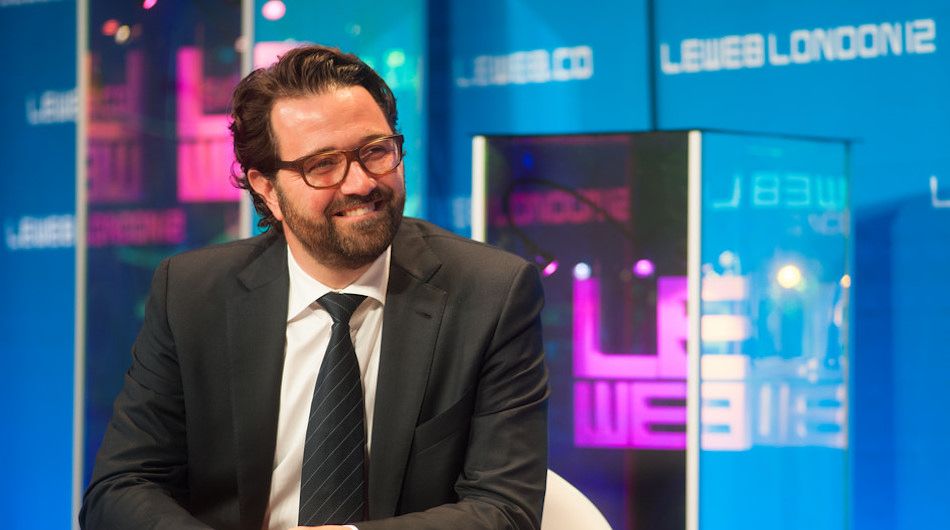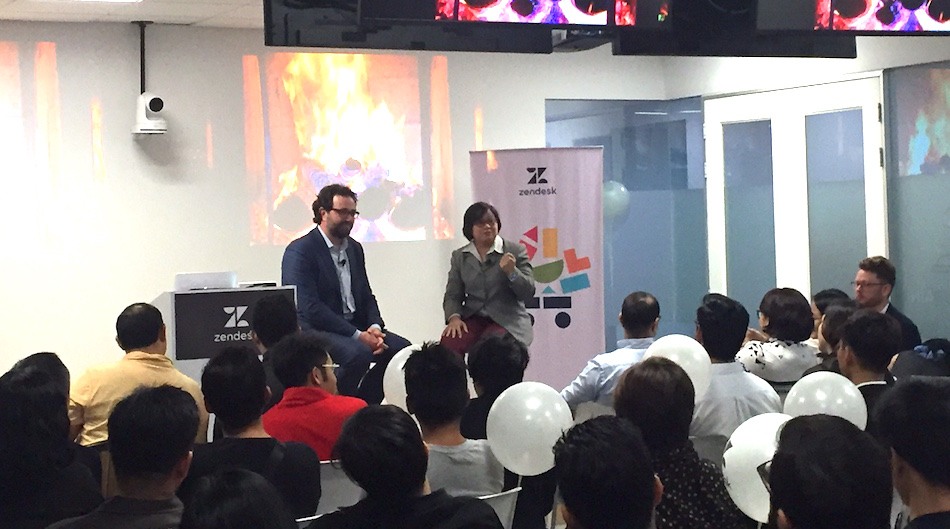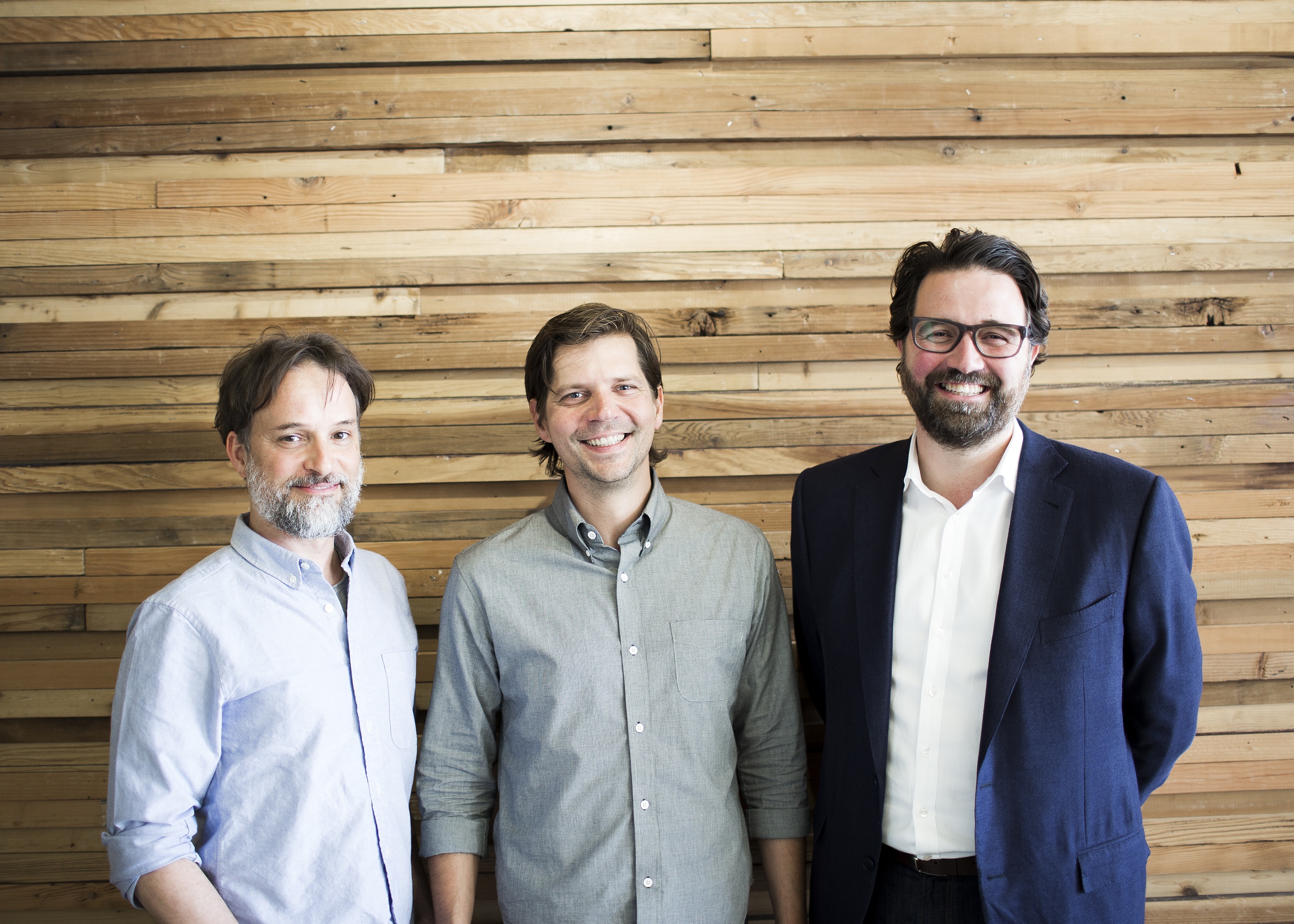
Zendesk CEO Mikkel Svane. Photo credit: Official Leweb Photos.
Silicon Valley’s Zendesk is celebrating its 10th anniversary this year. From a scrappy startup in 2007 to a public company valued at US$2.6 billion today, it has come a long way.
“It was long and painful,” co-founder and CEO Mikkel Svane says. “You constantly do things, fall, and get up. Do things, fall, and get up.”
Zendesk, maker of customer engagement software, is now a 1,600-strong force across 14 markets worldwide.
How did it become a multibillion-dollar, cross-border business that competes with traditional players like Salesforce?
Mikkel shares sorely honest insights during a fireside chat with Minette Navarrete, president of Philippine investment firm Kickstart Ventures, in Manila this week. Here’s some:
On growing your customer base…
When you’re just starting, you have no choice but to do all you can to get attention and create awareness about your product, says Mikkel.
Zendesk in its early days put small ads in every channel possible and created tie-ups with other products so they’d write about the software. “We did everything to create noise.”
On making your customers loyal…
“What defines a customer’s loyalty to the brand is if things just work – they’re frictionless, seamless,” Mikkel says.
You have to spot which parts of your interactions with customers cause friction and go back to your product team and remove those parts.
If something goes wrong, he say good customer service would always beat whatever marketing effort you have.
And for startups, customer service doesn’t have to be a luxury. “Main thing here is tech.”
He recalls Zendesk’s first paying clients such as Uber, Pinterest, Dropbox, and Airbnb. “There were only two guys [in Uber] when they started using Zendesk – they started on our lowest US$9 edition. We were working with [many of our clients] since their very early days. They made use of the tech that’s available so they could scale and integrate customer service into their products,” Mikkel recalls.
“They had no marketing budgets and they knew it’s all about managing the experience,” he adds.
Uber and Airbnb, in particular, were very hands-on when dealing with customer feedback. “If someone had a bad experience, they had to be all over it right away and fix it. That’s because all their growth was organic – they were growing through customers sharing their great experience to other potential customers.”

Zendesk’s Mikkel chats with Minette Navarrete, president of Philippine investment firm Kickstart Ventures. Photo credit: Tech in Asia.
On revenue vs profitability…
You need to zoom in on growing a healthy business model. Profitability is something to consider later.
“Invest, invest, and invest in growth,” Mikkel stresses.
On getting the right investors and refusing the wrong ones…
It’s incredibly painful, he says, to say no to an investor if you’re out of money and you have a family to feed and bills to pay.
“It’s very little about the actual money – which sounds absurd when you don’t have the money!” he exclaims. “Money matters but more than that, it’s the kind of people you bring into the company.”
He cites as example one startup he personally invested in. That startup has such a great idea and a strong aspiration to make a difference in its industry but it took money from investors who constantly questioned its every move, believing they’re smarter. Those investors would always require meetings with lawyers, stealing time the founders could have otherwise spent building the business.
“Investors’ lifetime in the company is close to 10 years. When you get to work with these people in such a long time… it gets intimate, you really have to be able to relate to them. It’s a very complicated relationship,” he says.
“So it’d been a guiding principle for us that in all our rounds of capital raising, we were focused a lot more on who we got in rather than at what valuation.”
On building a product vs building a company…
Just because you’re a founder and have a good idea for a product doesn’t mean you’re a great company builder.
“I definitely have my strengths, but I’m not a strong operational person. For instance I don’t have an idea how to set out a plan for the sales team. There’s so many things around operationalizing a business that I’m terrible at. As you grow you have to hire people who know how to do that shit,” Mikkel admits.

Zendesk’s founding team (left to right): Alexander Aghassipour, Morten Primdahl, and Mikkel Svane. Photo credit: Zendesk.
On hiring globally…
Zendesk believes that diversity is what builds a global company. “Because we have customers all over the world, being as diverse as possible is important,” says the boss.
It’s not just about gender or race, he notes, but about ways of thinking and living. “We all have a tendency to build those cloaked systems where we affirm each other. Especially in Silicon Valley, it’s easy to build a team of hoodies where we can work on the things we build and lose touch with the world,” he elaborates.
“The more you can be a representation of the world around you, the stronger you can make your company.”
On keeping team culture and dynamism…
However, one of the biggest challenges of being a global and diverse company is preserving the culture that helped bring it where it is today, according to Mikkel.
Zendesk’s team’s dynamics has changed dramatically through the years and probably half of it – who’s been in the job for less than a year – doesn’t fully know the company’s origins, he says.
“When you’re a startup, you have a swivel chair management where everyone can turn around their chairs and see each other because it’s such a small team. Then you grow, suddenly you have two floors, then offices all over the world – people never meet each other.”
“You become incredibly dependent on local leaders.”
While you give your local leaders the freedom to build their own teams, you tie it all back to the core values that matter to the business.
On committing through thick and thin..
Growing a startup no doubt takes a lot of commitment and work.
Asked how his relationship with the founding team has been, Mikkel replies: “It’s like marriage. It’s the kids that keep it together. For everyone who’s been married for five years, I’m sorry but that’s how it’s gonna be,” drawing laughs from the audience.
He said he and his co-founders have been through the same rollercoaster ride as other startups but at the end of the day, “we all cared tremendously for what we built, the culture, and the people we hired.”
This post Zendesk CEO gives honest tips on growing a startup: ‘It’s marriage, you stay for the kids’ appeared first on Tech in Asia.
from Tech in Asia https://www.techinasia.com/zendesk-ceo-mikkel-svane-honest-tips-on-growing-a-company
via IFTTT
No comments:
Post a Comment